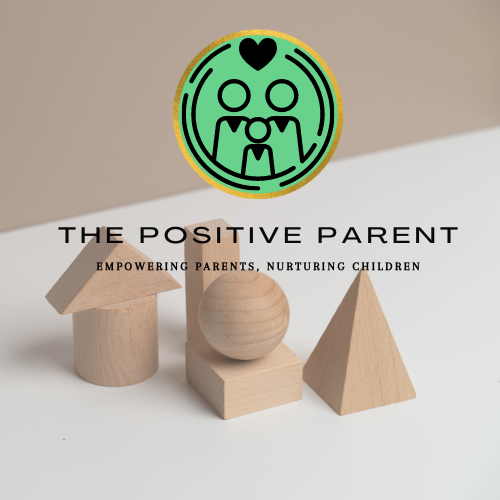Growing up with narcissistic parents can have long-term consequences for one's emotional well-being and personal development. In this blog post, we will look at the traits of narcissistic parents, the detrimental effects they can have on their children, and, most importantly, how to overcome these difficulties. Individuals can break free from the grip of their narcissistic upbringing and recover their personal power and self-worth by learning the dynamics and healing procedures.
Understanding Narcissistic Parents
Narcissistic parents are characterized by their overwhelming self-centeredness, which manifests in a variety of destructive behaviors. Their relentless need for adoration and attention leads them to manipulate and control those around them, completely disregarding the feelings and needs of others, including their own children. As extensions of themselves, these parents view their children merely as tools to fulfill their own desires and ambitions. Consequently, they treat their offspring as objects, belittling their individuality and denying them the recognition and respect they deserve. Growing up in this toxic environment can inflict deep emotional scars on children, leaving them plagued by feelings of unworthiness and inadequacy. These wounds become a constant burden, as they are driven to incessantly seek validation and approval from others, desperately yearning for a sense of self-worth that was systematically stripped away by their narcissistic parents.
The Impact of Narcissistic Parents
The consequences of having narcissistic parents can be substantial and far-reaching, affecting many facets of a person's life. Children with narcissistic parents frequently experience low self-esteem, anxiety, loneliness, and trouble building healthy connections. They may feel emotionally abandoned or suffocated as their narcissistic parents alternate between lavish praise and total indifference, creating an unpredictable and poisonous environment.
Overcoming the Impact of Narcissistic Parents
Self-reflection and self-awareness:
These are essential tools for personal growth and healing, and one area where they can help individuals substantially is in recognizing the effects of narcissistic parenting. Narcissistic parents frequently prioritize their own needs and desires over those of their children, which can have a number of negative effects.
Individuals might begin to unravel and understand the impact of their narcissistic parents on their lives by participating in self-reflection. This entails examining and assessing their background, relationships, and emotional well-being. It may require investigating how their parents' narcissism influenced their self-esteem, self-confidence, and overall sense of self.
Acknowledging the past is an essential step towards healing and moving forward. It requires accepting the reality of having narcissistic parents and recognizing the numerous ways their behavior may have affected one's emotional and psychological development. This acknowledgment allows individuals to validate their experiences and validate their feelings, providing a solid foundation to start the healing process.
One crucial aspect of self-reflection in the context of narcissistic parenting is understanding that one's worth is not defined by their narcissistic parents' opinion of them. Narcissistic parents often project their own insecurities onto their children, seeking to control and manipulate them to meet their own needs. As a result, children may grow up believing their worth is dependent on meeting their parents' unrealistic expectations or receiving their conditional love and approval.
Developing an understanding that one's self-worth is separate from their parents' opinion is liberating and empowering. It involves recognizing that their own values, achievements, and inner qualities determine their worth, rather than external validation. This shift in perspective allows individuals to break free from the damaging cycle of seeking approval from narcissistic parents and instead focus on building a healthy sense of self and nurturing their own well-being.
Self-reflection and awareness also enable individuals to identify and challenge the negative beliefs and patterns ingrained by narcissistic parenting. By recognizing the distorted messages they may have internalized, such as feeling unworthy, unlovable, or never good enough, individuals can actively work towards fostering healthier thoughts and behaviors.
Self-reflection and awareness play a vital role in understanding the impact of narcissistic parenting and beginning the healing process. Recognizing the past and acknowledging its influence allows individuals to reclaim their own self-worth and break free from the hold of their narcissistic parents' opinions. Through self-reflection, individuals can cultivate a deeper understanding of themselves, challenge negative beliefs, and embark on a journey of healing and personal growth.
Setting Boundaries:
Establishing and enforcing healthy personal boundaries is essential for protecting one's emotional well-being. Boundaries are like invisible lines that define the limits of acceptable behavior in our relationships with others. They help us maintain a sense of self-worth, ensure our needs are met, and protect us from emotional harm.
One critical aspect of creating healthy boundaries is minimizing contact with toxic individuals who consistently undermine our self-esteem. These individuals often exhibit manipulative, controlling, and negative behavior that can lead to emotional stress and damage.
Toxic people may constantly criticize, belittle, or demean us, making us feel inadequate or unworthy. Their negative energy can drain our emotional resources and leave us feeling exhausted, anxious, or depressed. By limiting our interaction with such individuals, we can safeguard our emotional well-being.
Establishing boundaries with toxic people requires self-awareness and assertiveness. First, we need to recognize the negative impact these individuals have on our lives and acknowledge our own self-worth. Understanding that we deserve better treatment is crucial in building the confidence to establish healthy boundaries.
Once this awareness is established, it is important to set clear expectations and communicate them assertively. For example, one might say, "I will not tolerate being spoken to disrespectfully. If you continue to do so, I will end the conversation." By clearly expressing our boundaries and the consequences if they are crossed, we send a strong message about our self-worth and our commitment to protecting our emotional well-being.
Enforcing boundaries can be challenging, as toxic individuals may try to manipulate or guilt-trip us into allowing their toxic behavior. It is important to remain firm and consistent, refusing to engage in arguments or provide explanations for our boundaries. Remember, it is not our responsibility to change toxic people; our priority must be protecting ourselves.
Support systems, such as friends, family, or therapists, can be invaluable resources when dealing with toxic individuals. They can provide emotional support, offer guidance on boundary-setting techniques, and reinforce the worthiness of healthy relationships.
In some cases, completely severing ties with toxic individuals might be necessary for our emotional well-being. Although it can be difficult to detach from certain relationships, taking this step is a powerful act of self-care. Removing toxic individuals from our lives allows us to create space for healthier, more positive relationships that uplift and support us.
By establishing and enforcing healthy personal boundaries, we prioritize our emotional well-being. We reclaim control over our lives and protect ourselves from the negative influence of toxic individuals. This process may require self-reflection, assertiveness, and support from others, but the benefits are immeasurable.
Emotional well-being is critical for leading a fulfilling and meaningful life. By valuing ourselves, setting boundaries, and minimizing contact with toxic individuals, we take proactive steps towards cultivating a healthy and balanced emotional state. In doing so, we pave the way for greater happiness, self-acceptance, and overall well-being.
Seek Support:
One of the most important aspects of navigating through life's challenges is to connect with trustworthy friends, support groups, or therapists who can provide validation, empathy, and guidance. Human beings are undoubtedly social creatures, and having a strong support system can make a significant impact on our well-being and ability to overcome difficult situations.
When we find ourselves facing struggles, it's essential to reach out to others who can relate to our experiences and offer support. Sharing our burdens with trusted friends can provide a sense of relief and validation, reminding us that we are not alone in our struggles. They can empathize with our emotions, offering a listening ear and understanding, which can be incredibly comforting during tough times.
Additionally, support groups can be invaluable resources for those enduring similar challenges. Joining such groups allows individuals to connect with others who have gone through comparable situations, providing a safe space to express their feelings, share their stories, and learn from one another's experiences. These collective interactions foster a sense of belonging and mutual understanding, reducing feelings of isolation and helping individuals to realize that their struggles are shared.
Lastly, seeking guidance from therapists or counselors can be beneficial when facing challenging circumstances. These professionals possess the expertise and knowledge needed to provide impartial advice and effective tools for coping with difficult situations. They offer a confidential space for individuals to explore their emotions, work through any underlying issues, and develop strategies to overcome their struggles.
In conclusion, building connections with trustworthy friends, engaging in support groups, or seeking guidance from therapists fosters a supportive environment necessary for personal growth and resiliency. By sharing experiences and learning from others who have gone through similar struggles, individuals not only obtain validation and empathy but also gain valuable insights and practical tools to navigate their own difficulties.
Therapy and Professional Help:
Consider seeking professional help, such as therapy or counseling, to address and heal the deep-rooted wounds caused by narcissistic parenting.
Therapists can offer specialized guidance, helping individuals work through unresolved issues and rebuild their sense of self.
Conclusion
Breaking free from the impact of narcissistic parents requires courage, self-reflection, and the willingness to pursue personal growth. By understanding the dynamics of narcissistic parenting, individuals can reclaim their power and rebuild their self-esteem. Healing is a journey, and with the right support systems in place, it is possible to overcome the negative impact and live a fulfilling and authentic life. Remember, you are deserving of love, respect, and happiness, regardless of the treatment received from narcissistic parents.






Comments
Post a Comment